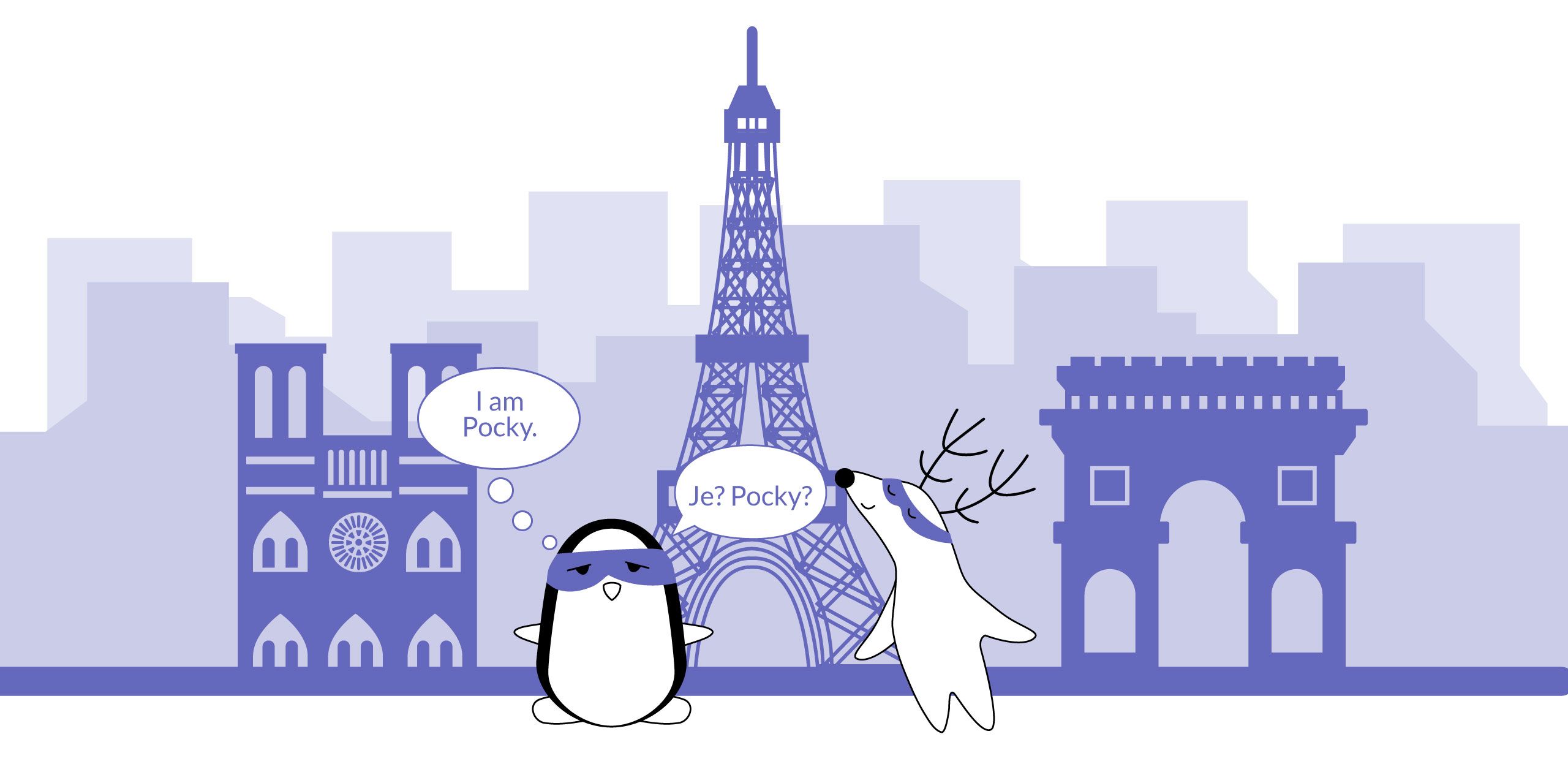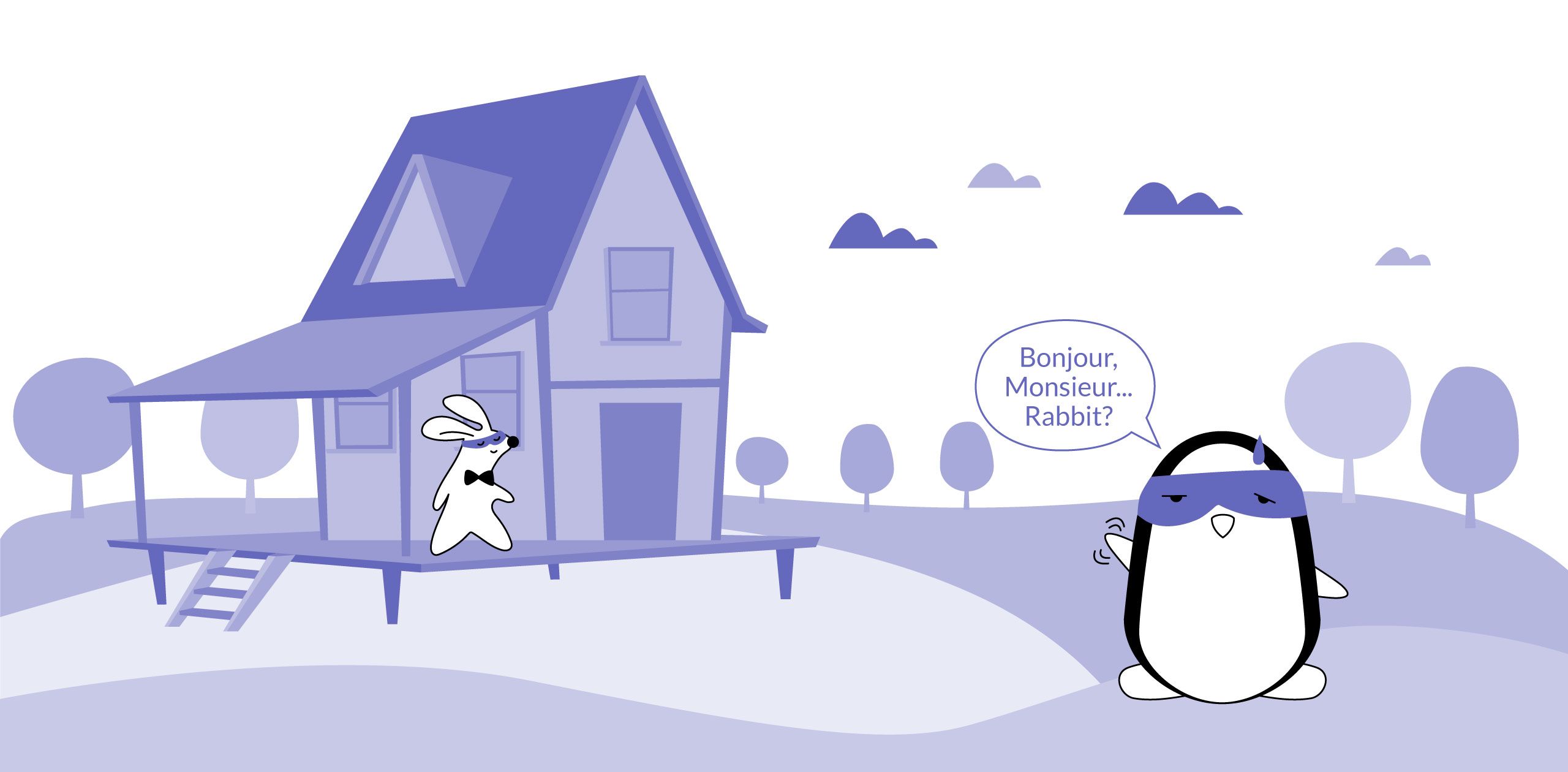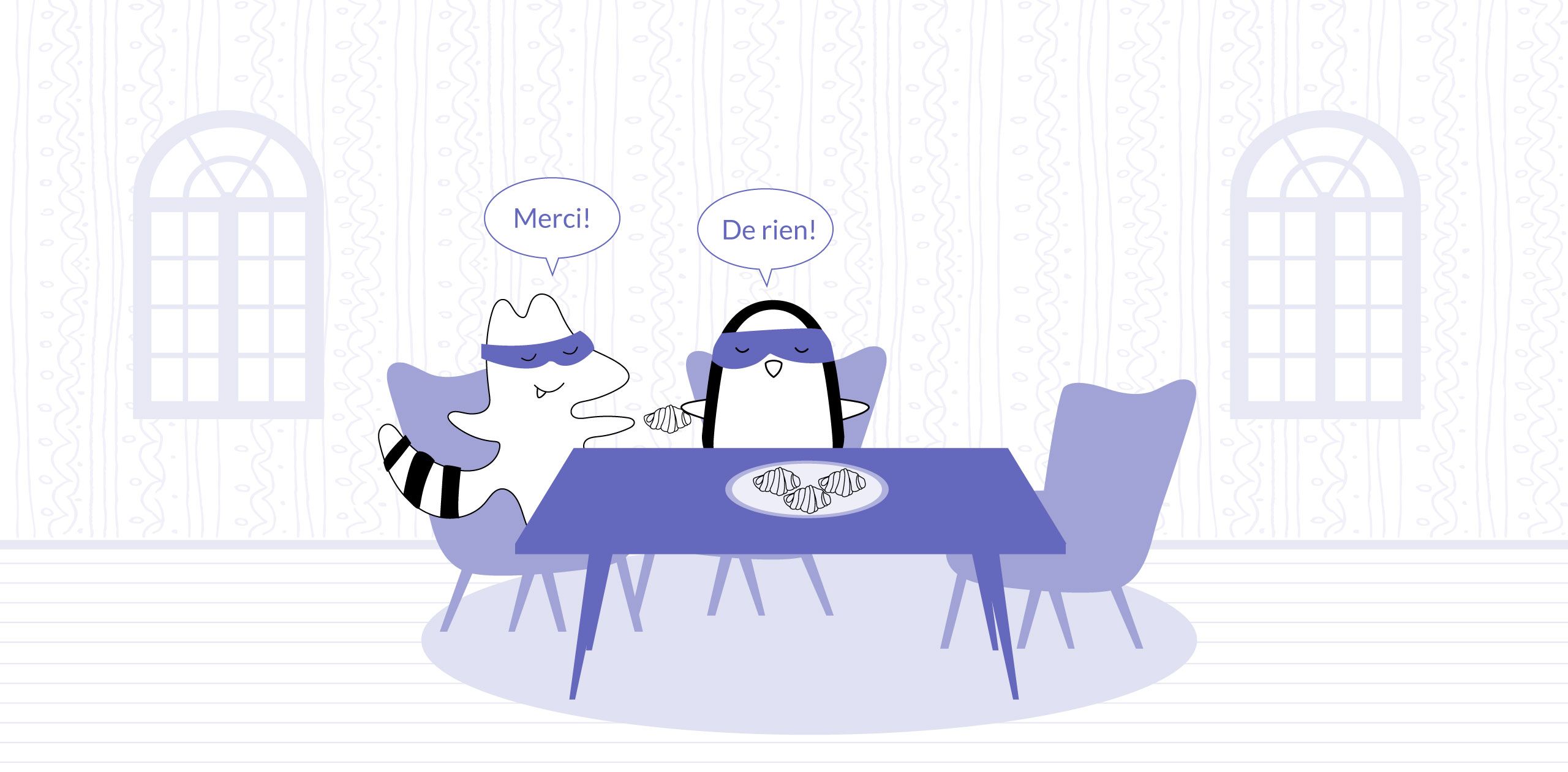
Just like there isn’t only one way to say “thank you” in French, you can also say “you’re welcome” using different expressions. Some of them are appropriate in informal situations, others are more polite, and a couple are only used in Quebec or Belgium.
To make it even trickier, most “thank yous” are not interchangeable. So if you want to say “you’re welcome” in French and sound like a native, learning different phrases is a must.
Of course, as French is not your first language, you will most likely be forgiven if you use the wrong “you’re welcome” in a certain situation - for example, say pas de problème instead of je vous en prie in a formal situation.
But you don’t have to make these simple mistakes. While there are several expressions for saying “you’re welcome” in French, they are pretty easy to learn - especially with our constructive guide. Check it out below and see for yourself.
Learn French with Langster
1. The formal one: Je vous en prie
“Je vous en prie” is the most polite way to say “you’re welcome” in French. It’s very cultured and slightly old-fashioned, so you might not hear it in smaller towns around France.
This phrase literally means “I beg you” or “please.” Don’t worry about the translation though, French speakers don’t really see it as such.
French
English
Je vous en prie.
You're welcome.
When to use it?
Certainly not with your close friends or family members - this phrase is very formal as you use the personal pronoun “vous.” For example, you can say it at the store, at school, at work, or when talking to people you don’t know well.
Don't forget to use it, though. Remember that politeness is a big part of the French culture, and saying "you're welcome" or not may determine your relationship with another person.
For example:
French
English
- Jack, tu as fait le rapport ?
- Oui, je vous l'ai envoyé par e-mail.
- Merci.
- Je vous en prie.
- Jack, have you done the report?
- Yes, I’ve sent it to you via email.
- Thank you.
- You're welcome.
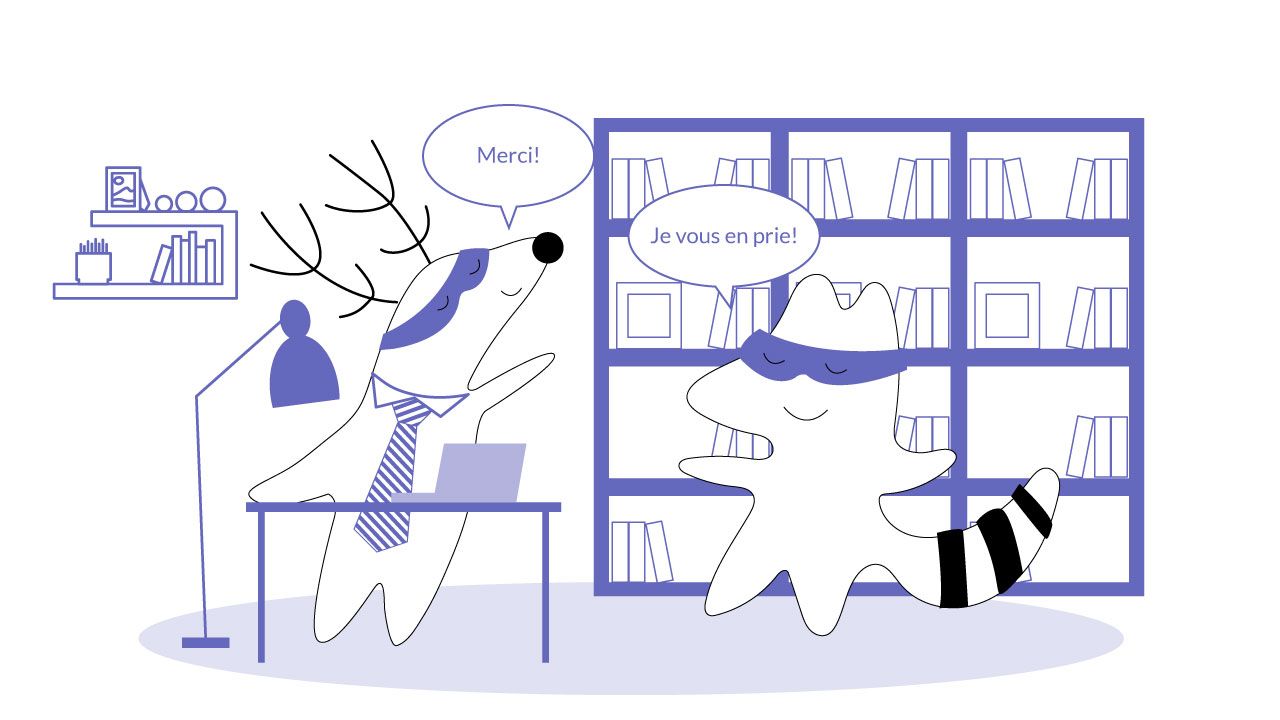
A little less formal: Je t’en prie
If you want, you can make this phrase slightly less formal by changing the pronoun to “tu” and thus saying Je t’en prie.
This expression is a bit more casual, yet not completely informal. You can use it when talking to people you’re on the “tu” basis with when you want to sound professional or when someone thanks you for something important.
However, you might not hear this expression often - for many French speakers, “je t’en prie” seems like a strange combination of a formal expression said in an informal way.
French
English
Je t’en prie.
You're welcome.
2. The common one: De rien
On the other hand, this expression you might hear more frequently than je t’en prie or even je vous en prie. De rien is probably the most common way to say “you’re welcome” in French, and it can generally be used in almost any situation (except for professional or extremely formal ones).
French
English
De rien.
You're welcome.
De rien can be translated as the alternative of the English phrase “that’s nothing/don’t worry about it,” and it literally means “of nothing.” It’s also similar to the Spanish “de nada” - so if you know some Spanish already (or if you’re learning both languages on Langster), you shouldn’t have problems memorizing this phrase.
How to use it?
You shouldn’t say de rien to your boss or business partner; however, you can freely use it when talking to your friends, relatives, classmates, colleagues you feel friendly with, etc.
You can also say de rien when someone thanks you for something not that important - for example, passing them salt during dinner.
Add some glam
If you want your “de rien” to sound a little fancier, you can add some extra words to eat. For example:
French
English
Ce n’est rien !
It’s nothing!
Mais de rien, monsieur/madame !
But of course, sir/madam!
3. The easiest one: Pas de problème
Are you looking for the most casual way to say “you’re welcome” in French? In that case, you can use pas de problème. This phrase doesn’t really mean “you’re welcome” in French - instead, it’s an informal response with a literal translation of “no problem.”
French
English
Pas de problème.
No problem.
It’s also the easiest phrase to remember for the English native speakers who are just starting to learn French, as it sounds similar to the English expression.
How to Use “Pas de problème”
What you need to remember here is not to use this phrase in formal situations - for example, when saying “you’re welcome” to your boss.
However, you don’t have to only use pas de problème when talking to a close friend or a family member- you can say it after doing someone a favor. For example:
French
English
- Merci beaucoup de m'aider à porter les bagages dans les escaliers.
- Pas de problème.
- Thank you for helping me carry luggage up the stairs.
- No problem.
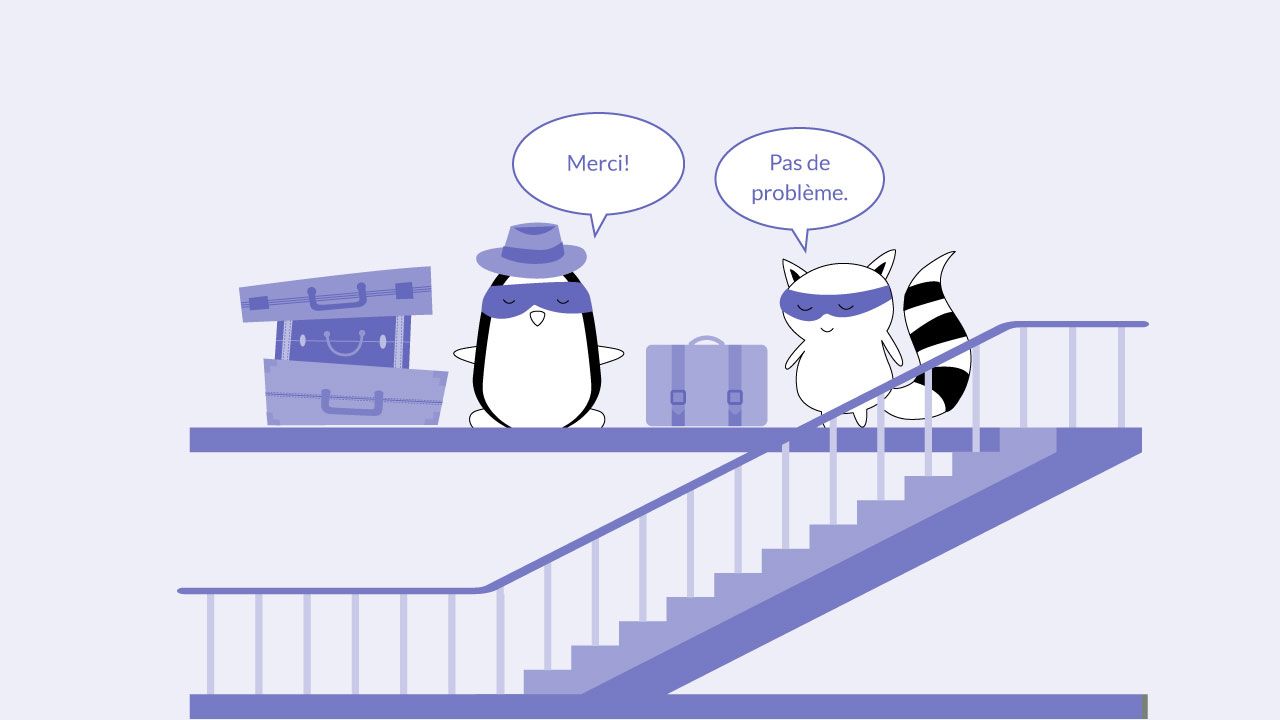
You can also say pas de soucis instead of this phrase, which means “no worries.” However, this is also an informal way of saying “you’re welcome” in French, so be careful when you’re using it.
4. The fancy one: Il n’y a pas de quoi
“Il n’y a pas de quoi” is literally translated as “there is nothing (to thank me for)” or “there’s no reason to thank me for.” This is yet another common way to say “you’re welcome” in French, and can be used in the same context as “de rien.”
You can, for example, say il n’y a pas de quoi after doing someone a favor or when talking to a colleague.
This phrase is also often shortened as y a pas de quoi. This version is even more informal, so you should avoid using it in polite conversations. However, you can definitely say y a pas de quoi among close friends or family members.
French
English
Il n’y a pas de quoi.
You're welcome.
5. The complicated one: C’est moi qui vous remercie
Among all the formal expressions that allow you to say “you’re welcome” in French, this one is the most polite. For example, you can hear it from a seller at a store, and it will mean something like, “it’s me who should thank you” or “the pleasure is all mine.”
French
English
C’est moi qui vous remercie.
You're welcome / the pleasure's all mine.
However, not many French-speaking people use this phrase - probably because it’s too long and highly formal. Its shortened version, “c’est moi,” is more commonly used, although it is slightly more casual.
When to use this expression?
You can say C’est moi qui vous remercie when someone thanks you while you think you should be the one thanking them. For example, after a work meeting:
French
English
- Merci pour la réunion, Marie.
- C’est moi qui vous remercie de nous avoir accordé du temps.
- Thank you for the meeting, Mary.
- That’s me who should thank you for taking the time.
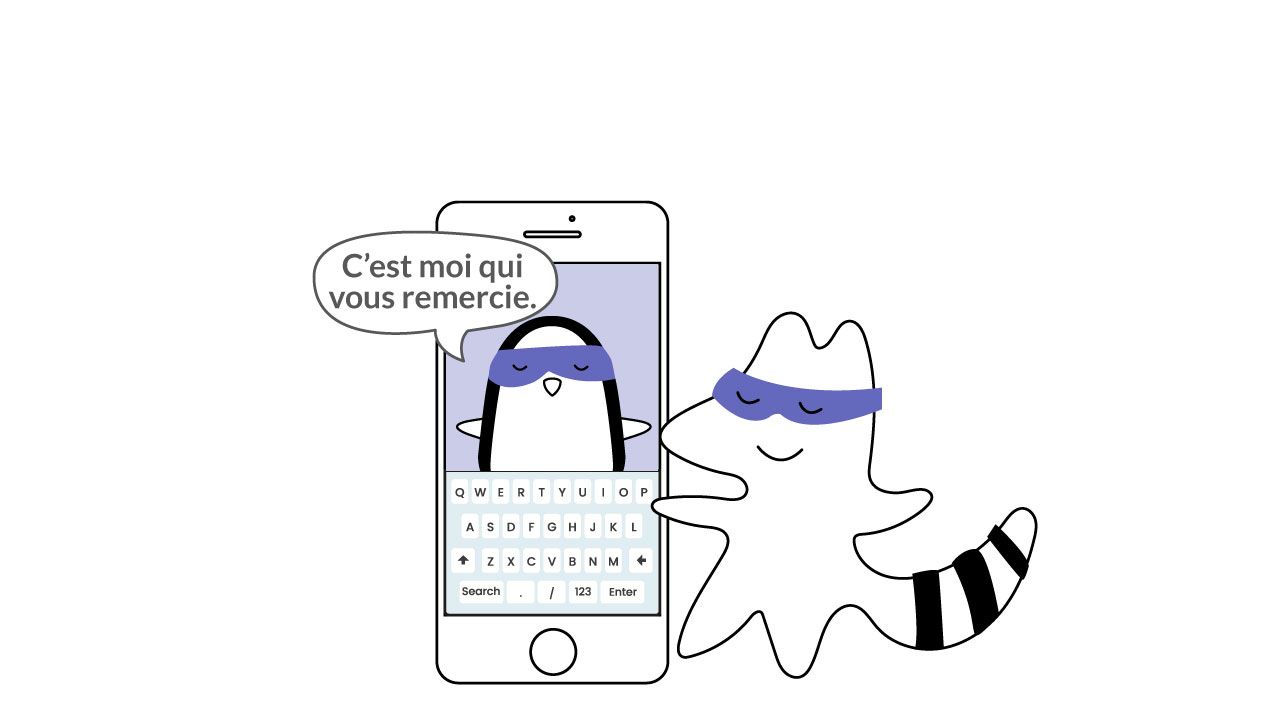
6. The southern French: Avec plaisir
Of course, in different regions of France, you will hear different expressions used to say “you’re welcome” - that’s the same as with pain au chocolat and chocolatine.
In Southern France, you’re more likely to hear “avec plaisir” when someone has to respond to your “merci/merci beaucoup.” For English speakers learning French this phrase is very straightforward and easy to learn as it's almost the same as “my pleasure.”
It’s literally translated as “with pleasure” or “it’s a pleasure,” and it’s a French alternative for “my pleasure.” Of course, it doesn’t directly mean “you’re welcome” in French - however, you can use it to tell someone you were happy to do what you did.
French
English
Avec plaisir.
With pleasure.
For example:
French
English
- Merci de m'avoir aidé à déménager.
- Avec plaisir.
- Thank you for helping me move.
- My pleasure.
Be cautious
Avec plaisir is used in different ways in the French regions. While in the south of France, it’s commonly used as an alternative to “de rien” - as an informal way to say “you’re welcome” - in other French regions, it doesn’t directly mean “you’re welcome.”
What we recommend is to stick to “avec plaisir” only in southern France - and everywhere else use “de rien” or other informal ways of saying “you’re welcome.”
7. “You’re welcome” around the world
The French language is not the same in the different countries around the world.
While Parisian French is often seen as a traditional version that you will learn in most of the French classes, there are many French-speaking places you might want to visit. And there, people use different ways to say “you’re welcome” that are not common in France.
Let’s take a look at how you can say “you’re welcome” in French when visiting Canada, Belgium, and Switzerland.
The Canadian one: Bienvenue
It may sound strange, but people speaking Canadian French actually use bienvenue to say “you’re welcome.”
French
English
Bienvenue.
You're welcome (Canada).
However, if that seems unusual to you, just remember that “bienvenue” literally means “thank you” or “welcome” in French. So they are not wrong to use this expression in Canada.
The Belgian one: S’il vous plaît
In Belgium, you can often hear s’il vous plaît in response to merci, and it may seem that that’s just another way to say “you’re welcome.” However, it actually means “if you please.”
French
English
S’il vous plaît.
If you please (Belgium).
It’s a pretty formal way to respond to “merci” - for example, in restaurants. You can hear it from a waiter, and in that case, it will be more of an invitation to eat - something similar to je vous en prie.
The Swiss one: À votre service
À votre service is a pretty formal expression that is often used in hotels or restaurants, and literally means “at your service.” You don’t have to say it yourself (although it will sound pretty polite) - but you can use a shorter version: service.
French
English
À votre service.
You're welcome (Switzerland).
This is also not a direct way to say “you’re welcome” in French, but it is commonly used in the French-speaking regions of Switzerland. However, don’t worry - you don’t have to memorize this or any other local expressions. All Francophone people understand standard French, so you can simply use other common ways to say “you’re welcome.”
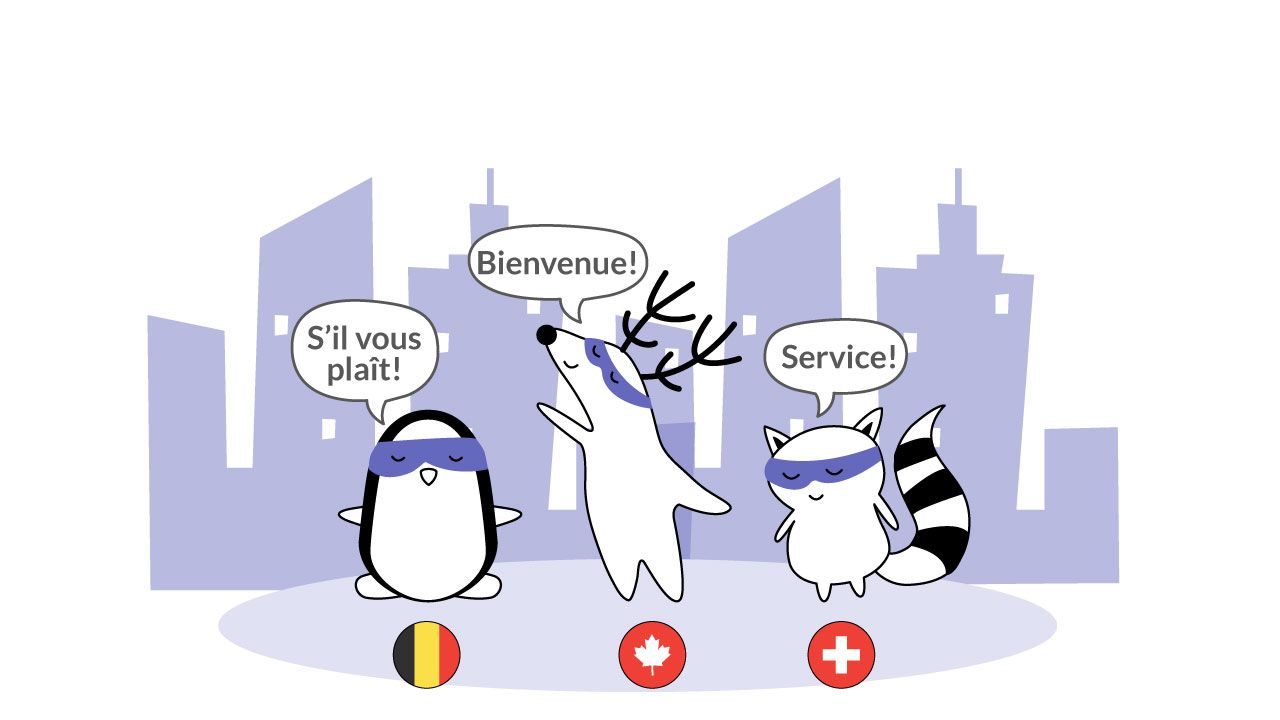
Final Thoughts: There isn’t one right way to say “You’re welcome” in French
As you can see, when it comes to saying “you’re welcome” in French, there’s a number of expressions you can choose from. What you should remember here is not to stick to just one of them.
Yes, it might seem easier to learn je vous en prie and use it every time you speak with French people. But there are many ways to respond to “merci,” and they will differ according to the context. Learning a few common phrases is a must, especially if you want to speak French fluently.
However, we know that it can be pretty challenging to learn huge chunks of French vocabulary when you’re just starting your language learning journey. The key is to practice often and not just memorize new words and expressions.
For example, you can do various exercises, watch French movies, or use apps - such as the Langster app - to reinforce what you’ve just learned. Trust us: there’s no better way to become fluent in French (or any other language) than to speak and practice.







